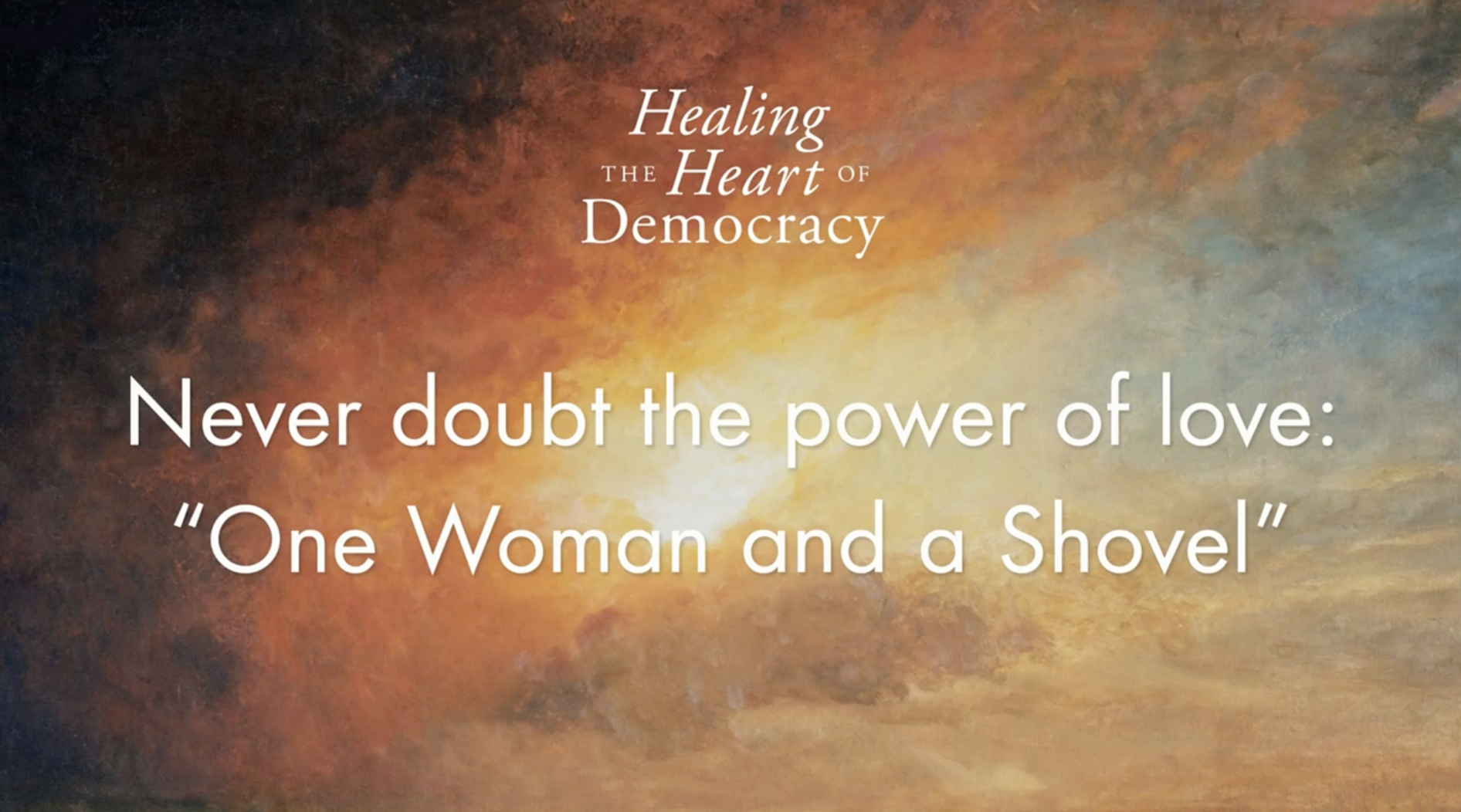From the Healing the Heart of Democracy Discussion Guide // Think about a social movement that has unfolded during your lifetime, such as the civil rights movement, the women’s movement, or the movement for gay and lesbian rights. To what extent do you think these movements have been fueled by “the power of love” that Carrie sings about in “One Woman and a Shovel”? To what extent do you believe in “the power of one” that the song illustrates? Is there anything you care about so much that you have picked up or would pick up “your shovel” to do something about it?

This video is a part of the Healing the Heart of Democracy Discussion Guide and can be found with more videos and resources in our “Healing the Heart of Democracy Hub.” You can explore the hub, download the guide, and find all of the videos along with additional resources here.
———
In practical political terms, what does it mean to reclaim the aspirations found in our myths and work toward achieving them? The best answer to that question is found by studying the great movements for social change—movements that have made a difference in the lay and the law of the land, movements so well chronicled that they provide the closest thing we have to a written history of the heart of politics.
Look, for example, at the international movement for women’s rights; the movements for liberation in South Africa, Eastern Europe, and Latin America; the American civil rights movement of the twentieth century; and the never-ending movement called American democracy that began in 1776. The history of these momentous processes of change points to a simple fact: without an uprising of vision and energy among those who suffer most from the gap between vision and reality, little progress can be made on the challenges facing humankind.
Movements of social transformation are sparked by people who are isolated, marginalized, and oppressed but who do not fall into despair. Instead, they respond to their condition by taking the poet Rilke’s advice that we go inward “and do heart-work / on all the images imprisoned within” us. Having released those images, they return to the world of action resolved to live in a way that will help it become a place in which their humanity is honored. Under the right conditions, their witness can tap a collective yearning that contains enough energy to move the world closer to the heart’s aspirations. (184)
Q. Think about a social movement that has unfolded during your lifetime, such as the civil rights movement, the women’s movement, or the movement for gay and lesbian rights. To what extent do you think these movements have been fueled by “the power of love” that Carrie sings about in “One Woman and a Shovel”? To what extent do you believe in “the power of one” that the song illustrates? Is there anything you care about so much that you have picked up or would pick up “your shovel” to do something about it?
We offer an abundance of resources to help you learn more about our approach and explore the ways in which our work has meaningfully impacted people’s lives.
There was a problem reporting this post.
Please confirm you want to block this member.
You will no longer be able to:
Please note: This action will also remove this member from your connections and send a report to the site admin. Please allow a few minutes for this process to complete.
